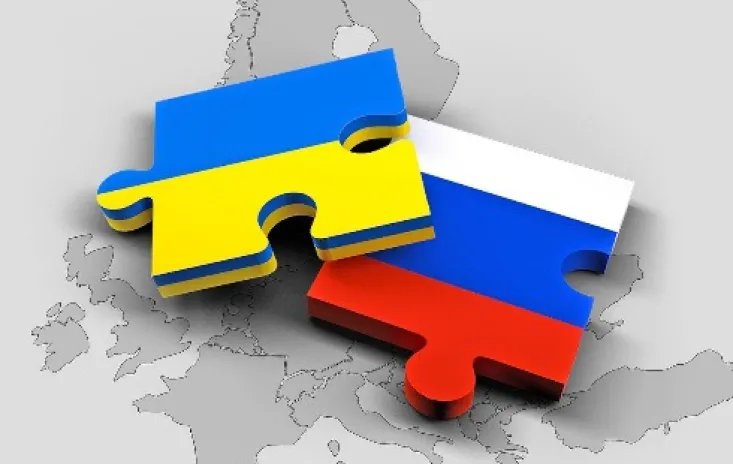
Ukrainian Diplomat Calls for Stronger Security Commitments Beyond NATO-Style Guarantees
Section: Politics
 In a move that has raised significant international concern, high-level officials from the United States and Russia are convening in Saudi Arabia to discuss potential resolutions to the ongoing war in Ukraine. Notably absent from these discussions is Ukraine itself--a sovereign nation whose future is being deliberated without its participation. This exclusion not only undermines Ukraine's sovereignty but also sets a precarious precedent for international diplomacy.
In a move that has raised significant international concern, high-level officials from the United States and Russia are convening in Saudi Arabia to discuss potential resolutions to the ongoing war in Ukraine. Notably absent from these discussions is Ukraine itself--a sovereign nation whose future is being deliberated without its participation. This exclusion not only undermines Ukraine's sovereignty but also sets a precarious precedent for international diplomacy.
Ukraine's Rightful Place at the Table
Ukrainian President Volodymyr Zelensky has been unequivocal in his stance: any peace agreement formulated without Ukraine's direct involvement is unacceptable. "We cannot recognize any agreements about us without us," Zelensky asserted, emphasizing the fundamental principle that decisions impacting a nation should not be made without its consent. This sentiment resonates deeply with the Ukrainian populace, who have endured immense hardships throughout the conflict and view their inclusion in peace negotiations as a non-negotiable right.
International Reactions and Concerns
The decision to exclude Ukraine from these critical talks has elicited strong reactions from global leaders. Former NATO official Stefanie Babst expressed alarm, stating that the United States' unilateral approach could erode trust among European allies. "The U.S. is no longer acting as a reliable ally to Europe," Babst warned, highlighting the potential long-term ramifications of sidelining both Ukraine and European nations in the peace process.
French President Emmanuel Macron also weighed in, advocating for a more inclusive approach. "Europe must have a central role in any negotiations concerning the continent's security," Macron stated, underscoring the necessity of a united front in addressing the conflict's complexities.
The Imperative of Inclusive Diplomacy
Excluding Ukraine from peace negotiations not only undermines its sovereignty but also jeopardizes the legitimacy and durability of any potential agreement. History has demonstrated that sustainable peace is achieved through inclusive dialogue that respects the rights and voices of all parties directly involved. By sidelining Ukraine, the current approach risks fostering resentment and mistrust, which could impede the path to lasting peace.
A Call for Reconsideration
As the U.S. and Russia proceed with their discussions, it is imperative to recognize that any resolution to the conflict must be acceptable to the Ukrainian people and their democratically elected leadership. President Zelensky's insistence on Ukraine's involvement is not merely a political stance but a reflection of the nation's right to self-determination. The international community must support Ukraine's inclusion in peace talks to ensure that any agreement reached is just, equitable, and sustainable.
In conclusion, the path to peace in Ukraine cannot be charted without Ukraine. Upholding the principles of sovereignty and inclusive dialogue is essential in forging a resolution that honors the sacrifices made and paves the way for a stable and prosperous future for all Ukrainians.

Section: Politics

Section: News

Section: News

Section: News

Section: Arts

Section: News

Section: News

Section: News

Section: News

Section: News
Both private Health Insurance in Germany and public insurance, is often complicated to navigate, not to mention expensive. As an expat, you are required to navigate this landscape within weeks of arriving, so check our FAQ on PKV. For our guide on resources and access to agents who can give you a competitive quote, try our PKV Cost comparison tool.
Germany is famous for its medical expertise and extensive number of hospitals and clinics. See this comprehensive directory of hospitals and clinics across the country, complete with links to their websites, addresses, contact info, and specializations/services.
Join us at the Kunstraum in der Au for the exhibition titled ,,Ereignis: Erzählung" by Christoph Scheuerecker, focusing on the captivating world of bees. This exhibition invites visitors to explore the intricate relationship between bees and their environment through various artistic expressions,...



No comments yet. Be the first to comment!